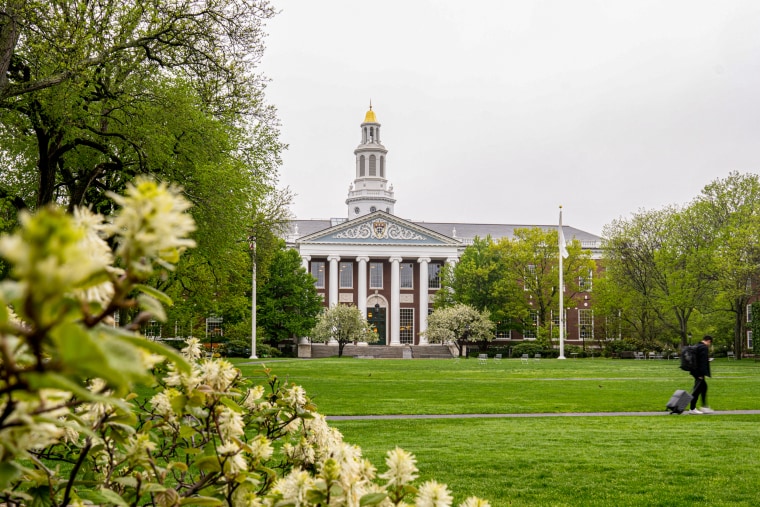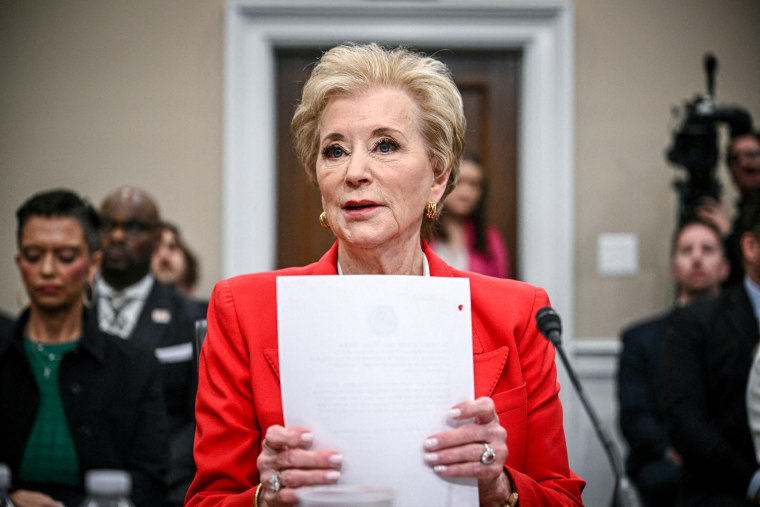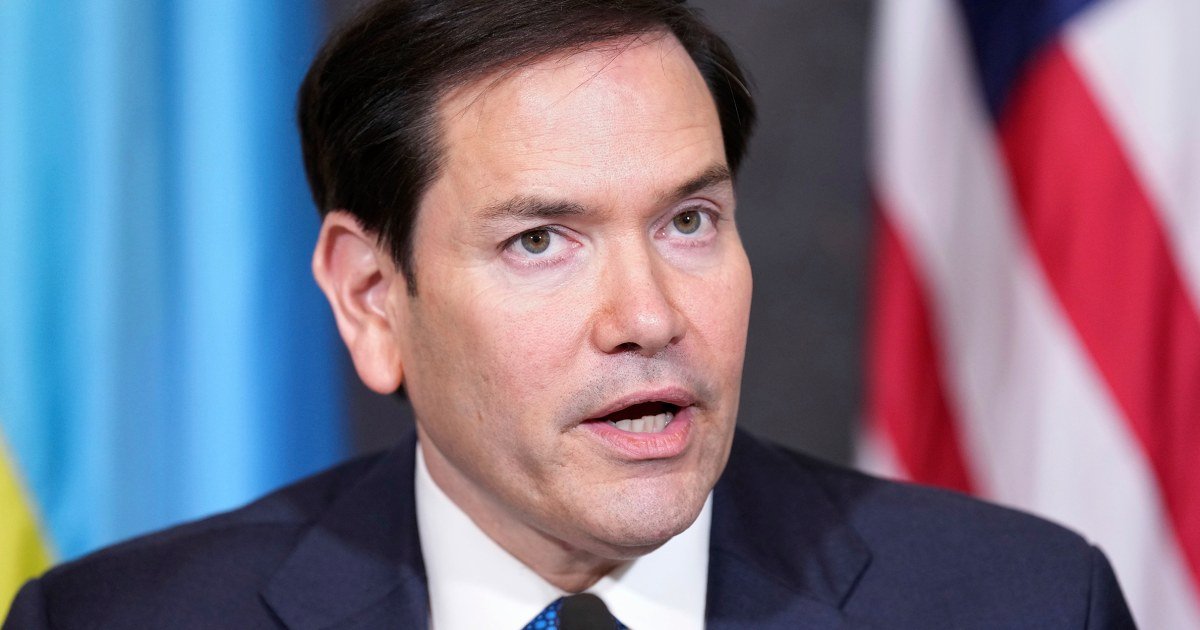Education
Trump’s civil rights cuts undermine his push to fight campus antisemitism, Democrats say

Democratic senators said in a Thursday hearing that the Trump administration is undermining its own goal of addressing antisemitism on college campuses by firing the federal staffers who investigate civil rights issues in schools.
In recent weeks, the Trump administration has opened dozens of investigations into colleges as part of an effort to wipe out antisemitism at universities. It also took the unprecedented step of canceling $400 million in research funding for Columbia University on the grounds that it had not done enough to combat discrimination against Jewish students; after that, the school agreed to change some of its policies.
At the same time, however, the Department of Education terminated half the staff in its Office for Civil Rights, the congressionally mandated arm of the agency that investigates failures by schools to address discrimination. As of mid-January, the office had 12,000 open investigations but recently stopped updating its list of pending cases.
During a hearing about campus antisemitism held by the Senate Health, Education, Labor and Pensions Committee, Sen. Patty Murray, D-Wash., said slashing staff at the Office for Civil Rights while trying to crack down on discrimination is like axing the fire department while trying to fight fires.
“You can’t just cut an agency in half and pretend everything’s fine,” Murray said.
Rabbi David Saperstein, one of the hearing witnesses and a former United States ambassador-at-large for international religious freedom, agreed that downsizing the civil rights office harms Jewish students, particularly because it will increase caseloads for investigators.
“They’re grinding it to a halt,” Saperstein said, “and it is the students of America of all kinds who are facing discriminations that are going to suffer.”
Catherine Lhamon, the head of the Office for Civil Rights under the Biden administration, told NBC News earlier this month that investigators were averaging around 50 cases per person when she left the government in January. With the office now slashed in half, it’s expected that caseloads would significantly increase.
The Department of Education and the White House did not immediately respond to requests for comment.
Two weeks ago, the Department of Education initiated mass layoffs, and last week, Trump signed an executive order calling on Education Secretary Linda McMahon to begin dismantling the department. The agency can only be shut down by an act of Congress.
All schools that receive federal funding must abide by civil rights laws, including those protecting students from discrimination based on ancestry, race and sex. When the Office for Civil Rights receives a complaint alleging violations of those laws within the past 180 days, it is required by its own regulations to investigate. If it finds evidence that the law was violated, the agency will typically lay out steps that a school must take to fix the problem, and can initiate a process to pull federal funding if the school refuses.
Three other Democratic senators also brought up the Office for Civil Rights firings during the hearing, as did witnesses who called for the federal government to put more funding, not less, into the office so it could tackle its backlog of cases.
Carly Gammill, director of legal policy at the nonprofit StandWithUs Center for Combating Antisemitism, a nonprofit, said schools need to be held accountable by the government when civil rights laws are violated.
“There are often not people who are well qualified and equipped to address these things on the campuses themselves,” she said.
Sen. Susan Collins, R-Maine, was quick to respond and, like her Senate colleagues, highlighted the role of the Office for Civil Rights. “That is why we need to make sure that office continues to be adequately resourced,” she said.
Education
In his war on Harvard, Trump pits the Ivy League against the working class

As President Donald Trump’s war on Harvard University intensifies, he is shifting his message in a seeming bid for new allies — apart from punishing the institution, he’s also promising to elevate the working class.
In a post on Truth Social on Monday, Trump proposed sending $3 billion in research funding cut from Harvard to trade schools across the country. “What a great investment that would be for the USA, and so badly needed!!!” he wrote.
With that money, he told reporters at the White House on Wednesday, “you can have the best trade schools anywhere in the world.”
It’s unclear how Trump’s proposal would work, where the money would come from or how it would be distributed. The Trump administration didn’t respond to questions.
But while the plan may be untenable, some education experts say pitting research at the world’s wealthiest university against support for low-cost trade schools is a savvy move.
“Politically it’s incredibly effective,” said Nat Malkus, deputy director of education policy at the American Enterprise Institute, a right-leaning think tank. “He communicates in a very brief post on Truth Social where his favor lies, and it lies not with the, you know, elite cosmopolitans at Harvard but with everyday Americans.”

Trump has blasted elite colleges for years as out-of-touch institutions that don’t do enough to help students avoid debt, often singling out Harvard, even before the current conflict. More recently, the Trump administration has accused Harvard of failing to address antisemitism and issued a mandate for sweeping reforms in whom the university can admit and hire.
When Harvard refused the demands, the administration cut nearly $3 billion in research funding and attempted to end its ability to host international students.
This week’s push represents a new tactic: trying to build public support by implying that Harvard’s success comes at a cost to working Americans.
Most of the federal government’s cuts to Harvard have been to health research, such as studies on cancer and lung disease, which the university has defended as vital. Harvard didn’t respond to a request for comment. In an NPR interview, Harvard President Alan Garber challenged Trump’s approach.
“The real question is how much value does the federal government get from its expenditures on research,” he said. “There is a lot of actual research demonstrating the returns to the American people have been enormous.”
The Trump administration defended the cuts. “American universities that are committed to their academic mission, protect students on campus, and follow all federal laws will have no problem accessing generous taxpayer support for their programs,” Madi Biedermann, a spokesperson for the Education Department, said in a statement.
Improving vocational education has been a priority in both Democratic and Republican administrations. Trump has spoken about it in tandem with his quest to bring manufacturing jobs back to the United States. Last month, he signed an executive order directing federal agencies to coordinate a national strategy on career and technical education.
At her confirmation hearing, Education Secretary Linda McMahon emphasized the value of such schools. “Our vocational and skilled-based training is not a default education; it can be front and center so that students who are inclined to go in that direction actually should be encouraged to do that,” she said.

Jerome Grant, CEO of Universal Technical Institute Inc., one of the largest private chains of trade schools, said he has had meetings with Education Department officials about increasing support for vocational education, but not at the expense of other colleges. His concern is less about money, he said, than about helping teens and young adults see the benefits of trade school.
“We’re not in the fray with Harvard or anything — we don’t have any beef with any four-year schools,” Grant said. “We just believe that for a lot of kids in America, four-year schools shouldn’t be thought of as their only path after high school.”
The idea that all students should strive for degrees from traditional four-year colleges has given way in recent years amid economic changes and mounting student debt, creating an ascendant bipartisan agreement that other education options should be supported, too.
Trade schools focus on preparing students for certification in specific professions without the general education courses or electives of traditional colleges. So they typically take less time to complete and are less expensive than four-year colleges. Some trade schools are housed at community colleges, largely funded by states and federal student aid.
But many trade schools are also considered for-profit colleges, a sector of higher education that has been scrutinized in the past for failing to deliver on its promises to students.
Education policy experts say the “One Big Beautiful Bill” that Trump urged House Republicans to pass could weaken regulations of the schools — and harm working students. As currently drafted, it would roll back regulations that hold career-training programs accountable if their students don’t earn enough after they graduate and expand Pell Grant use to students at shorter-term and unaccredited education programs. It would also limit Pell Grant eligibility for part-time students, many of whom are working-class.
Neither the White House nor the Education Department responded to questions about the provisions.
Jason Altmire, president of Career Education Colleges and Universities, an association that represents private trade schools and for-profit colleges, said his organization welcomes the reforms in the House bill and Trump’s suggestion of pumping more money into trade schools.
Altmire, a former Democratic House member from Pennsylvania, called the Truth Social post a “continuation of a lot of good things President Trump has done and said” about the schools he represents. (A former chief policy officer at Altmire’s group has been tapped to become the country’s top higher education official.)
He said that his sector of for-profit schools — whether they are vocational or degree-awarding — has been unfairly maligned based on a few extreme examples and that they represent a way forward for many people.
“I don’t view it as a zero sum, but I do view it as a changing of the narrative of what’s the priority of this country when it comes to higher education,” he said.
Carolyn Fast, director of higher education policy at the Century Foundation, a progressive think tank, also supports vocational education and questions the need to pit it against schools like Harvard.
“It’s a false narrative to say the fact that we’re funding research at these colleges means we’re not funding opportunities for people to have good career education,” she said. “Both are good goals for us to have.”
Education
U.S. will ‘aggressively’ revoke Chinese students’ visas, Rubio says

HONG KONG — The United States will start “aggressively” revoking the visas of Chinese students, Secretary of State Marco Rubio said Wednesday, including those with connections to the Chinese Communist Party or studying in critical fields.
The announcement is the latest move in the Trump administration’s campaign against U.S. universities and international students in particular, after it revoked thousands of students’ visas, detained or deported others over political activism, and sought to bar international students from enrolling at Harvard.
Rubio said in a statement that visa criteria would also be revised to “enhance scrutiny” of all future visa applications from the People’s Republic of China and the Chinese territory of Hong Kong.
“Under President Trump’s leadership, the U.S. State Department will work with the Department of Homeland Security to aggressively revoke visas for Chinese students,” he said.
The Chinese Embassy in Washington did not immediately respond to an emailed request for comment outside of business hours. Beijing has previously expressed opposition to the “politicization” of educational exchanges and said it would “safeguard the legitimate rights and interests” of Chinese students overseas.
China is the second-biggest source of international students in the U.S. after India, though numbers have been dropping in recent years amid growing U.S.-China tensions and disruptions from the Covid-19 pandemic. In the 2023-24 academic year there were about 277,000 Chinese students in the U.S., down from a peak of more than 370,000 in 2019-20.
International students make up about 6% of the total population of U.S. higher education overall.
NBC News reported Tuesday that the Trump administration had stopped scheduling new interviews for foreign nationals seeking visas to study in the U.S., citing an internal State Department cable. The cable said the suspension was in preparation for expanded social media screening of applicants.
Education
Two UW-Platteville students die in ‘targeted and isolated’ shooting at dorm

Two University of Wisconsin-Platteville students died in what officials said Monday was a “targeted and isolated” shooting on campus.
The two 22-year-old students, Kelsie Martin and Hallie Helms, were the only people involved in the incident at an on-campus residence hall, the university said.
Martin, a psychology major and assistant resident director at Wilgus Hall, was airlifted to a University of Wisconsin hospital after she was found with a gunshot wound, according to the statement.
She was later pronounced dead, the school said.
A preliminary autopsy found that Helms, who lived at Wilgus Hall and was an elementary education major, died from a self-inflicted gunshot wound, the school said in a statement Tuesday night.
Helms was pronounced dead at the scene, according to the statement.
The statement did not provide additional details about the nature of the shooting and asked for people with information to share it with the school’s police department.
Earlier, UW-Platteville Police Chief Joe Hallman said that authorities quickly determined there was no ongoing threat after receiving a 911 call about an incident at Wilgus Hall shortly before 4 p.m. A shelter-in-place order was lifted just after 5 p.m.
Sophomore Eric Sperduto, who lives in Wilgus Hall, told NBC affiliate WMTV of Madison that he saw two girls running from the building after 4 p.m. Monday. He also saw law enforcement in the building.
“It’s just really sad and just sad to think about the families that are affected by this and people that were their friends and stuff that, I guess, that are students just like me that are changed now,” Sperduto told the station.
In a statement, Chancellor Tammy Evetovich mourned the loss of Martin, of Beloit, Wisconsin, and Helms, of Baraboo, Wisconsin, and said the well-being of their community was top of mind.
“Please take the time to take care of yourself and others,” she said.
The university, which has a student body of more than 6,000, canceled final exams and is offering counseling services this week for members of the community, according to the statement.
If you or someone you know is in crisis, call or text 988, or go to 988lifeline.org, to reach the Suicide & Crisis Lifeline. You can also call the network, previously known as the National Suicide Prevention Lifeline, at 800-273-8255, or visit SpeakingOfSuicide.com/resources.
-

 Africa4 days ago
Africa4 days agoSurvivor of Liverpool car ramming talks of shock and panic
-

 Sports3 days ago
Sports3 days agoThe Knicks are bringing hope and title dreams back to New York after years in the doldrums
-

 Lifestyle4 days ago
Lifestyle4 days agoFaizan Zaki hopes to go from spelling bee runner-up to champ
-

 Lifestyle3 days ago
Lifestyle3 days agoChildren and careers: Talking to kids about what they want to be when they grow up
-

 Lifestyle4 days ago
Lifestyle4 days agoHow to decorate a patio, balcony or other small outdoor space
-

 Middle East5 days ago
Middle East5 days agoHajj pilgrimage in Saudi Arabia to begin on June 4 | Religion News
-

 Lifestyle4 days ago
Lifestyle4 days agoA guide to navigating tariffs if you’re planning a wedding
-

 Asia3 days ago
Asia3 days agoShangri-La Dialogue: China snubs Asia’s largest defense forum as tensions with US simmer




